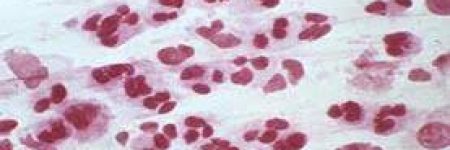Non-gonococcal urethritis is a urinary tract infection that affects the urethra, the duct that carries urine from the bladder to the outside of the body. This infection can be caused by bacteria, viruses, or fungi. It is important to know about non-gonococcal urethritis because it can cause uncomfortable and painful symptoms. Additionally, if not treated properly, it can lead to more serious complications. That’s why it is important to inform yourself about this disease and learn how to prevent and treat it.
How long does it take to heal non-gonococcal urethritis?
Factors affecting healing time There are several factors that can affect the time it takes to heal non-gonococcal urethritis. These include the severity of the infection, age, overall health, the immune system, and the treatments you are taking.
Average healing time The average healing time for non-gonococcal urethritis is around 2 to 7 days with proper treatment. However, it is possible for symptoms to persist for several days after healing. That’s why it is important to follow the treatment guidelines indicated by your doctor.
Differences between gonococcal and non-gonococcal urethritis
Characteristics of each type of urethritis There are two types of urethritis: gonococcal and non-gonococcal. Gonococcal urethritis is caused by the bacteria Neisseria gonorrhoeae, while non-gonococcal urethritis can be caused by different types of bacteria, viruses or fungi.
How are they diagnosed?
The diagnosis of urethritis is made through a physical examination and laboratory tests. Your doctor may collect a urine sample or urethral secretion sample to look for signs of infection.
Available Tests Medmesafe offers a wide range of urethritis diagnostic tests, from laboratory tests to physical exams. All tests are fast, easy, and effective in helping you determine what type of urethritis you have and how to treat it. In addition, Medmesafe offers deals and promotions on urethritis diagnostic tests. Stay tuned to their offers and take advantage of opportunities to get checked affordably!
https://www.medmesafe.com/sexually-transmitted-diseases-test-plus-8-std
https://www.medmesafe.com/complete-test-for-sexually-transmitted-diseases-and-infections
How to cure non-gonococcal urethritis.
The treatment for non-gonococcal urethritis depends on the underlying cause. Your doctor may prescribe antibiotics to treat a bacterial infection, antivirals for a viral infection, or antifungals for a fungal infection. In addition to medical treatments, you can also try some natural and home remedies to relieve the symptoms of non-gonococcal urethritis.
These include drinking plenty of fluids, using cold compresses, and taking warm baths.
However, it is important to consult your doctor before trying any natural remedy, to make sure it does not interfere with your medical treatment.
Certain lifestyles can worsen the symptoms of non-gonococcal urethritis, such as excessive drinking, smoking, or having an unhealthy diet. Try to avoid these activities and adopt a healthy lifestyle to improve urethritis. Additionally, certain sexual habits, such as having unprotected sex or having multiple sexual partners, can increase the risk of developing non-gonococcal urethritis.
Practice safe sex and get regularly checked to prevent urethritis. How to know what type of urethritis I have Symptoms and signs The symptoms of urethritis may include pain or burning while urinating, increased urinary frequency, and urethral discharge.
If you experience these symptoms, it is important to consult your doctor as soon as possible. Medical tests Your doctor can perform a physical examination and laboratory tests to determine what type of urethritis you have and how to treat it. Don’t worry, the tests are quick and not painful. In fact, they are the only way to know for sure what type of urethritis you have and how to cure it effectively.
Tips to Reduce Symptoms
There are some tips you can follow to reduce symptoms of non-gonococcal urethritis, such as drinking lots of water to keep the urethral area clean and taking warm sitz baths to relieve pain and burning. It is also important to maintain a healthy diet and avoid irritation in the urethral area.
If the above tips do not work, your doctor may prescribe advanced medical treatment to help cure non-gonococcal urethritis. Don’t worry, there are many effective treatments available and your doctor will find the best one for you.
By knowing about non-gonococcal urethritis and its risk factors, you can take preventive measures to avoid its appearance.
If you have urethritis symptoms, it is important that you go to the doctor and undergo the appropriate diagnostic tests to determine the most appropriate treatment.
I invite you to take non-gonococcal urethritis seriously and learn about it. Information is power, and by knowing about this disease you can prevent it or treat it efficiently. Don’t hesitate to go to the doctor if you have symptoms and remember that treating non-gonococcal urethritis in time is essential to maintain your health in optimal condition. Take care of your health!
References:
https://www.health.ny.gov/es/diseases/communicable/nongonococcal_urethritis/
https://medicina.uc.cl/publicacion/uretritis-no-gonococica-clinica-y-tratamiento/
Clément Destoumieux
PRESENT: + 20 years in complex legal and IT projects in France, the UK and Spain Expert in BioExpert exclusive network of experts in the sectors of life science and investment. Startups coordinator of ANIS (Spanish Association of Health Journalists) Lider ehealth in Asociación Española de Start up Active member of ASEBIO (Leading Spanish Biotech Association) PAST: Sociedad Española Informática de la Salud MBA in Ecole Des Mines – Nantes Master Degree in Ipag Business School in Paris
